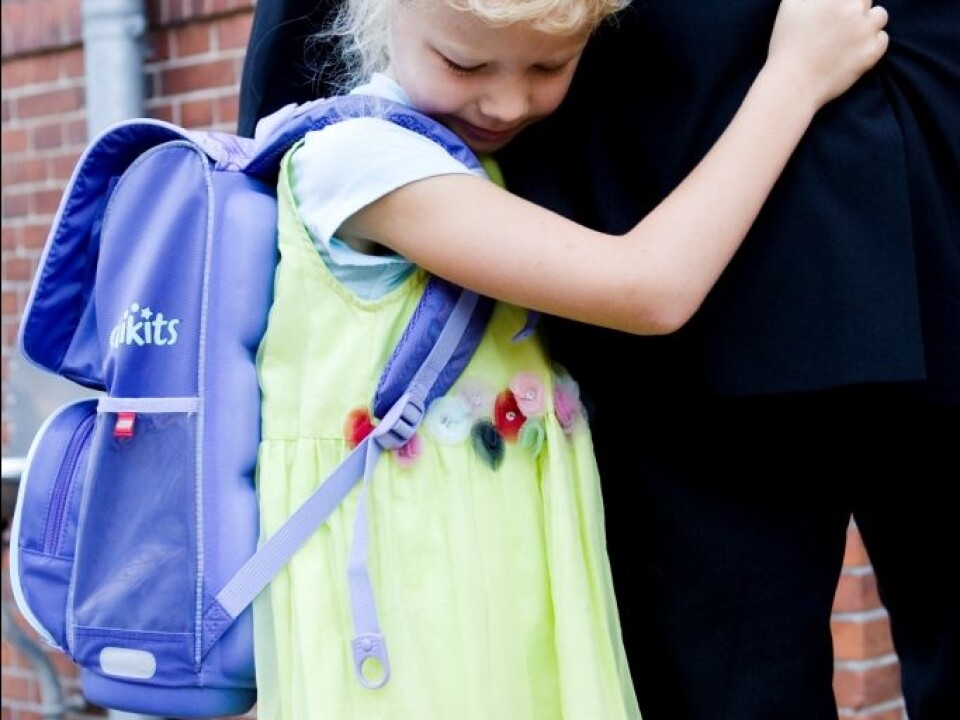An article from University of Tromsø – The Arctic University of Norway

Stress is good for children
Can children who are never exposed to stress grow up to be strong individuals? A psychologist doesn’t think so.
Denne artikkelen er over ti år gammel og kan inneholde utdatert informasjon.
In a world where everyone is focused on the negative aspects of stress, psychologist Oddgeir Friborg takes an opposite view. He believes that stress is healthy, especially for children.
"Everyone needs to experience stress. This is how we learn to solve challenges, build knowledge and acquire new skills," says Friborg, who is an associate professor of psychology at the University of Tromsø. “Children should also be allowed to experience stress.”
Friborg has a PhD in resilience - psychological resistance - with a focus on factors that protect and promote mental health.
He believes children today are too sheltered by their parents. "You can compare stress to vaccines that provide resistance. As long as the stress is within the range that one can tolerate, it can be considered healthy."

Friborg calls some of today's parents "curling parents", meaning that parents sweep away the obstacles facing their children.
He believes this is an unfortunate trend, because he believes that children need to encounter opposition and hurdles in the way ahead.
Kids need a little push
If, for example, children are shy or timid and don't want to join other children at play, they need to be pushed in a supportive, but authoritative way, according to Friborg.
Parents cannot do everything for their kids. If children learn at an early age to overcome their shyness, they will develop self-confidence and a feeling that they can cope with different social situations.

"Parents are also afraid to let children fight. If children quarrel with friends or siblings, it is best to let them fight. Let the children themselves try to solve their conflicts, because they will grow as a result of the experience," says Friborg .
There is also talk that children who do not like to speak in front of their peers should be allowed to avoid it, but is that right?
Friborg says it is absolutely correct to push them, because they have to learn to cope with it. This will build the child's coping skills, and they will be better equipped to meet the challenges that come later in life.
“If children never learn to cope with stress and conflict, how will they manage to handle stress and conflict as adults?" asks Friborg.
Must recognize boundaries
But there is one clear exception to pushing children to do things that cause stress, he says.
"The person who is pushing must be aware of limits. The focus should be on developing the children’s psychological strength, not destroying it," adds Friborg.
You have to know where the boundary is. Parents must establish an environment where their children can learn to master the situation − and this is very important.
He thinks children are supposed to be reinforced in their efforts to grow. This is best achieved by showing that you understand the child's feelings and by providing concrete and supportive advice.
He also says that individuals who can handle stress are healthier, from a subjective standpoint, and have a more optimistic outlook on life.
Being able to cope with stress liberates many positive emotions. The desire to learn increases.
People who can cope with stress find it easier to forget negative and painful things, and they find it easier going through life.
"Those who can cope with stress in everyday life have less aches and pains. Stressed people focus more attention on everything that is wrong, and that is of course quite natural, explains Friborg.
If your body senses danger, the brain has developed to want to identify that danger.
“We are evolved to pay more attention to the negative, and then people get into a negative spiral."
Sick from stress
Friborg adds that those who cannot handle stress tend to eat more unhealthily. They tend to have an unhealthier lifestyle − they eat fattier food, they drink more or they exercise less.
In this way, stress tends to lead indirectly to worse health, both physically and mentally. Not being able to handle stress can actually cause illness.
He points out that those who cannot handle stress, and who cannot deal with their tasks can feel quite helpless.
Stress hormones increase, and this can make us sick. Blood pressure rises, and over time the individual can develop diabetes and muscles can weaken.
“The response to stress can also affect learning, inhibit growth, weaken the immune system and result in slower recovery from diseases or infections,” says Friborg.
Family support and friendships protect us
The psychologist says there are factors that help make us resistant to stress.
One must develop personal skills and resources that provide a sense of control and purpose. Social skills are also important.
“People who feel more proficient in social situations cope with stress better, probably because they find it easier to talk to others about their problems. If you have social skills, you are more prepared to handle your stress," says Friborg.
Family support is one other factor that is protective.
"Family unity is important. If a family has lots of conflicts and is not united, this contributes to an individual handling stress poorly," says Friborg.
Other types of social resources will be extra important in this situation, such as friends or members of an extended family.
"One should cultivate good friendships. You don't have to have many friends, but it is important to have some friends who you can lean on during life crises."


































